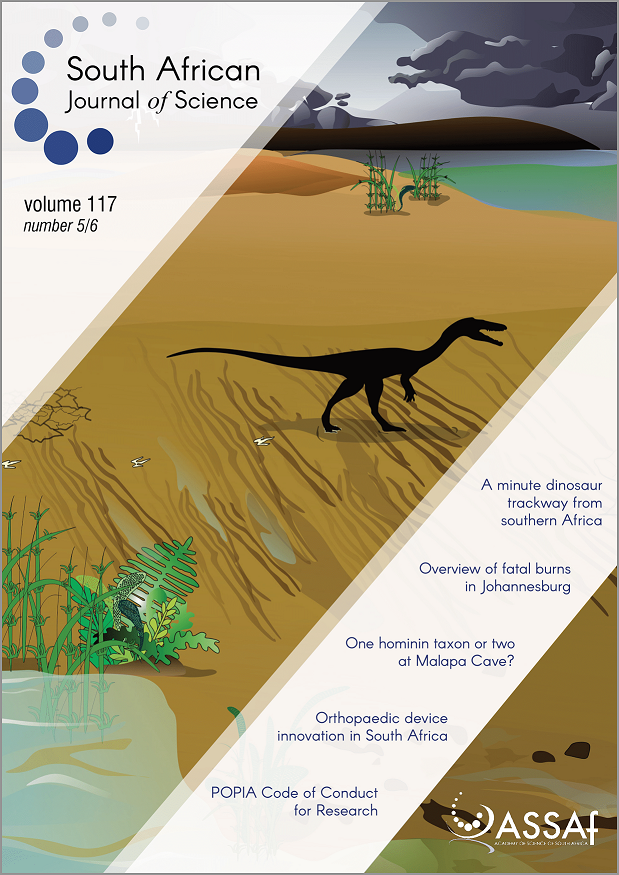Non-communicable diseases – a catastrophe for South Africa
DOI:
https://doi.org/10.17159/sajs.2021/8638Keywords:
biology of misfortune, child health, epigenetics, chronic illness, nutrition, social inequalityAbstract
Non-communicable diseases contribute significantly to the disease burden within South Africa. In the most unequal of societies in the world, poverty and socio-economic disparity are amongst the greatest obstacles facing South Africans, impacting heavily on health care. Adverse socio-environmental factors, especially those experienced during early life, can, through neurobiological and epigenetic mechanisms, developmentally programme the outcome of obesity, diabetes, cardiovascular disease and mental health disorders in adulthood. In this narrative review, we describe the social environment experienced by South Africans and discuss the potential contribution of epigenetics to the current and future prevalence of non-communicable diseases. A large part of the population (including 60% of young children) lives in poverty and endures challenging socio-economic environments, due to high unemployment, alcohol and substance abuse, and inter-partner violence. It is imperative that socio-economic factors be considered as risk factors for strategies aimed at reducing or preventing these disorders. If the current situation is left unchecked, the disease incidences could be exacerbated, and be potentially catastrophic for future generations. The consequences can be widespread and can have a direct effect on the future health and economic development of the country. Thus, child and adolescent health requires urgent attention and should be placed at the centre of the healthcare system. Early interventions providing optimum nutrition, a secure environment, together with physical activity and education should be the cornerstones for creating a healthier population for the future.
Significance:
- South Africa already has a high non-communicable diseases burden. Non-communicable diseases – like cardiovascular diseases, cancer, diabetes, respiratory illnesses and mental disorders – are known to be caused by the interaction of socio-environmental factors, physiology, behaviour and genetics. About 60% of South Africa’s children currently live in poverty, with adverse socio-environmental factors known to have a negative effect on development, leading to a plethora of health problems in adulthood.
- The implications for the current situation are widespread: a future population with deteriorated physical and mental health, presenting with co-morbidities that render these individuals more susceptible to infectious diseases. It is important to recognise the potential repercussions on the health prognosis of future generations.
- Endeavours should focus on early interventions that can provide optimum nutrition, education, and physical activity within a safe environment. These interventions can have favourable effects on children’s brain development and genetics, thereby promoting their well-being and increasing their life prospects.
Published
Issue
Section
License

All articles are published under a Creative Commons Attribution 4.0 International Licence
Copyright is retained by the authors. Readers are welcome to reproduce, share and adapt the content without permission provided the source is attributed.
Disclaimer: The publisher and editors accept no responsibility for statements made by the authors
How to Cite
- Abstract 2862
- PDF 5365
- EPUB 171
- XML 209
Funding data
-
South African Medical Research Council
Grant numbers Biomedical Research and Innovation Platform Baseline funding;Research Capacity Development Intra-mural Post-doctoral Fellowship












.png)